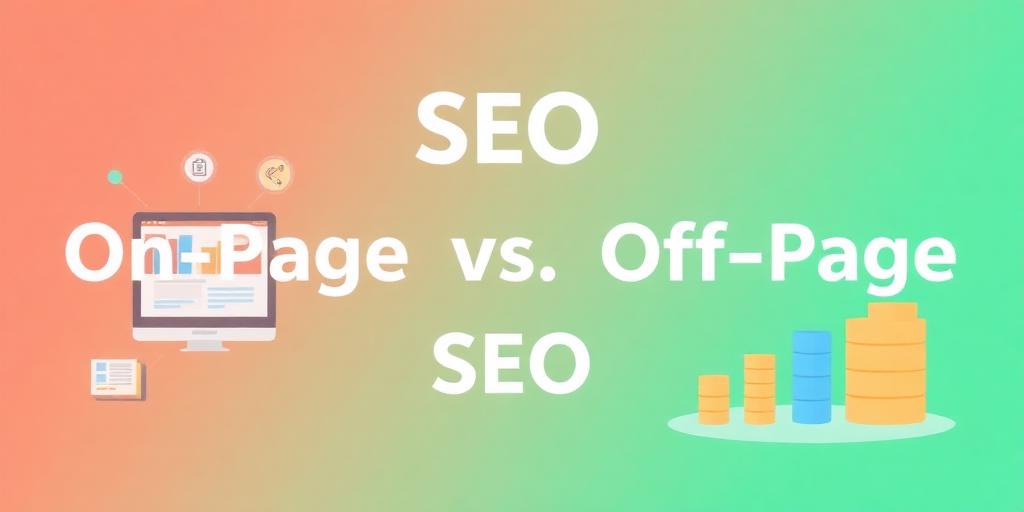Search Engine Optimization (SEO) is crucial for driving organic traffic to your website. It's a multifaceted process, but it can be broadly divided into two main categories: on-page SEO and off-page SEO. Understanding the difference between these two is fundamental to crafting a successful SEO strategy.
On-Page SEO: Optimizing Your Website's Content
On-page SEO refers to all the actions you take directly within your website to improve its search engine rankings. It's about making your content easily understandable and valuable to both users and search engines.
Key elements of on-page SEO:
- Keyword Research: Identifying the terms people are searching for and strategically incorporating them into your content.
- Content Optimization: Creating high-quality, relevant, and engaging content that satisfies user intent. This includes optimizing headings, subheadings, and body text.
- Title Tags and Meta Descriptions: Crafting compelling title tags and meta descriptions that accurately reflect your content and entice users to click through from search engine results pages (SERPs).
- URL Structure: Using clean, descriptive URLs that include relevant keywords.
- Image Optimization: Optimizing images by using descriptive file names and alt text to improve accessibility and search engine visibility.
- Internal Linking: Linking to other relevant pages on your website to improve site navigation and distribute link equity.
- Site Speed Optimization: Improving your website's loading speed to provide a better user experience and improve search engine rankings.
- Mobile-Friendliness: Ensuring your website is responsive and provides a seamless experience across all devices.
Off-Page SEO: Building Your Website's Authority
Off-page SEO involves all the activities you undertake outside of your website to improve its search engine rankings. It's primarily about building your website's authority and reputation.
Key elements of off-page SEO:
- Link Building: Acquiring high-quality backlinks from other reputable websites. Backlinks are a crucial ranking factor, as they signal to search engines that your website is a trusted source of information.
- Social Media Marketing: Promoting your content on social media platforms to increase brand awareness and drive traffic to your website.
- Brand Mentions: Earning mentions of your brand name on other websites, even without a direct link.
- Online Reputation Management: Monitoring and managing your online reputation to ensure a positive brand image.
- Influencer Marketing: Collaborating with influencers to promote your brand and reach a wider audience.
- Directory Listings: Listing your business in relevant online directories to increase visibility and drive local traffic.
On-Page vs. Off-Page SEO: Key Differences
| Feature | On-Page SEO | Off-Page SEO | | ------------------ | ------------------------------------------- | --------------------------------------------- | | Focus | Optimizing website content and structure | Building website authority and reputation | | Location | Within your website | Outside your website | | Control | Direct control | Indirect control | | Examples | Keyword research, content optimization | Link building, social media marketing | | Primary Goal | Improve relevance and user experience | Increase authority and trust |
Integrating On-Page and Off-Page SEO for Success
While on-page and off-page SEO are distinct, they are interconnected and equally important for a successful SEO strategy. On-page SEO provides the foundation by ensuring your website is search engine-friendly and provides a good user experience. Off-page SEO builds upon this foundation by increasing your website's authority and visibility.
By implementing a comprehensive SEO strategy that addresses both on-page and off-page factors, you can significantly improve your search engine rankings, drive more organic traffic to your website, and achieve your business goals.









